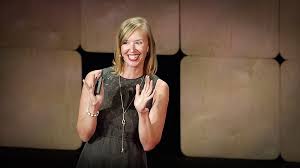"What's the scariest thing you've ever done? Or another way to say it is, what's the most dangerous thing that you've ever done? And why did you do it?"
Good Morning Folks,
If you watched the Grammys last night, you were surely moved by the tribute paid to David Bowie. But one of the most memorable tributes to Bowie was done by today's speaker. Tweeting (and covering Bowie) from the International Space Station last year, Colonel Chris Hadfield reminded the world how much we love space.
According to Colonel Hadfield, "where you could see the hardpan south of the Sahara, or you can see New York City in a way that is almost dreamlike, or the unconscious gingham of Eastern Europe fields or the Great Lakes as a collection of small puddles. You can see the fault lines of San Francisco and the way the water pours out under the bridge, just entirely different than any other way that you could have if you had not found a way to conquer your fear. You see a beauty that otherwise never would have happened."
There's an astronaut saying: In space, “there is no problem so bad that you can’t make it worse.” So how do you deal with the complexity, the sheer pressure, of dealing with dangerous and scary situations? Retired colonel Chris Hadfield paints a vivid portrait of how to be prepared for the worst in space (and life) — and it starts with walking into a spider’s web.
The Colonel asks, "what's the scariest thing you've ever done? Or another way to say it is, what's the most dangerous thing that you've ever done? And why did you do it? I know what the most dangerous thing is that I've ever done because NASA does the math. You look back to the first five shuttle launches, the odds of a catastrophic event during the first five shuttle launches was one in nine." Stay tuned for a special space-y performance. followed by today's TED Tuesday.
Thanks to you, for listening.
Love Life. Be strong. Be passionate. And BELIEVE.
Cheers,
Cheers,
Mitchell D. Weiner
Chief Happiness Officer
Ideas are not set in stone. When exposed to thoughtful people, they morph and adapt into their most potent form.TED Tuesdays on MitchWeiner.com highlights some of today's most intriguing ideas. Look for more talks on Technology, Entertainment and Design -- plus science, business, global issues, the arts and much more— HERE.














